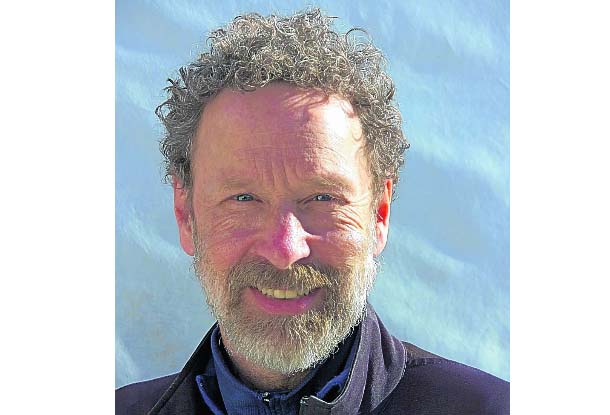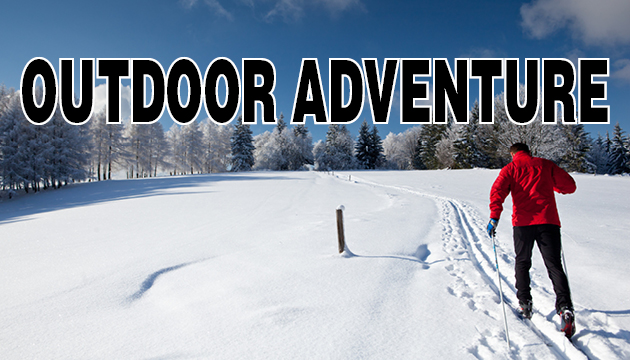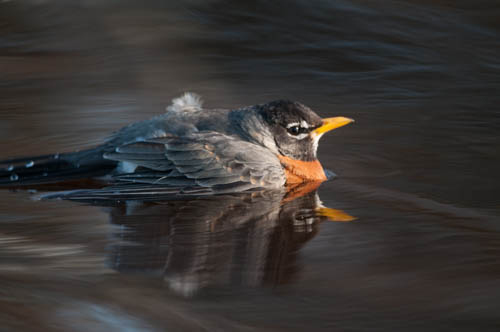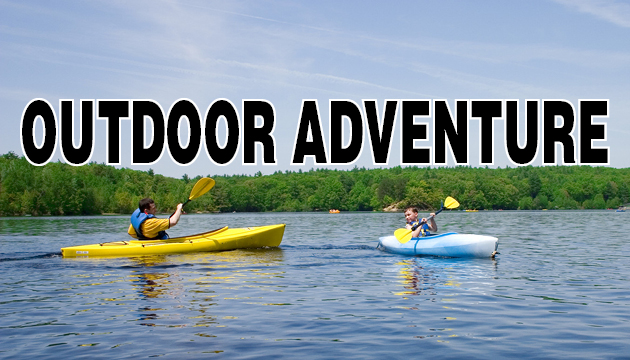Turning lakes to ice takes time, but the ice always wins
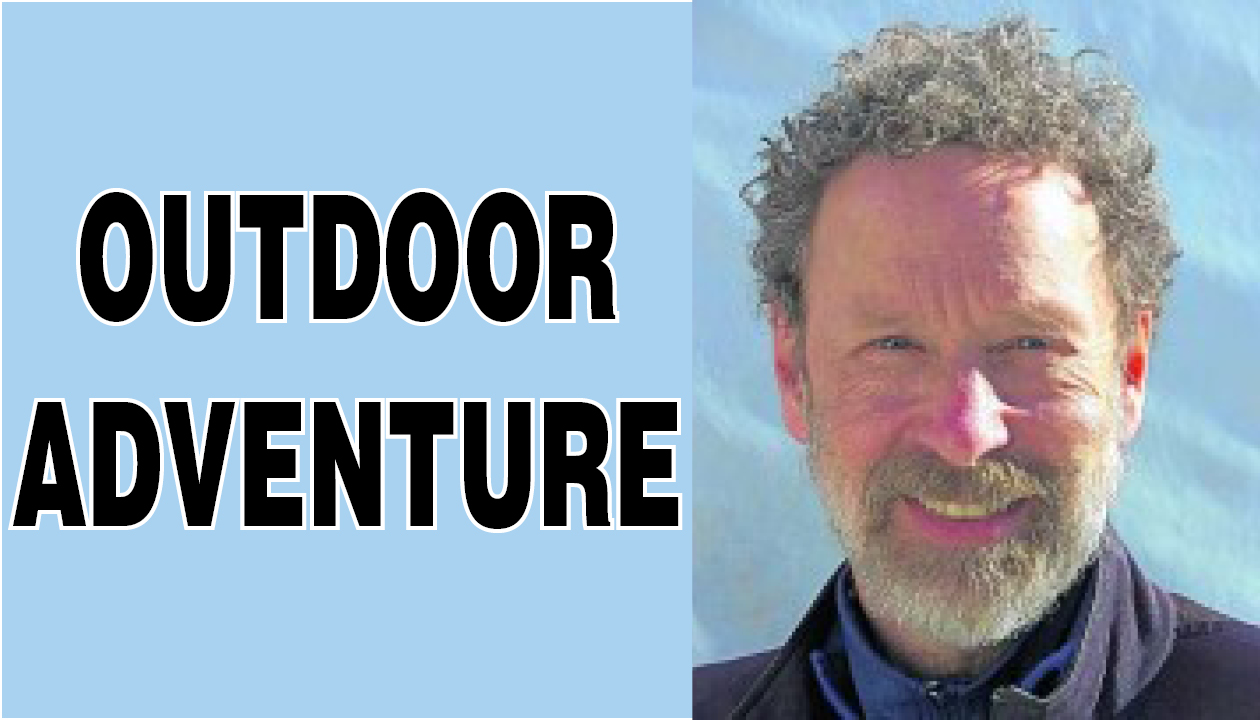
By Mitch Mode
Special to the Star Journal
In the beginning there is ice. Clear as crystal, hard as bone, elemental as stone. On a morning of hard cold, skim ice forms, thin as glasswork, filigreed with stress lines, glinting under the pale sun. The lake lies still.
The skim ice fails to warming temperatures, fractures under restless wind, is gone. But it comes again on a chill night, a patient process; the ice will win in the end, it just takes time. A dawn comes when the skim ice holds the lake captive and the temperatures drop and the fine film of ice thickens and the lake waters are stilled and will remain so for the rest of the winter.
On clear early winter nights of no wind and falling temperature the sound of ice forming rises, booming and groaning and moaning as if the water is protesting the coming of freeze. The sounds of ice thunder lift into the blackness. In the dawning of the new day the ice is thicker though we cannot tell by looking; thick ice and thin ice look the same from our perspective.
The lakes freeze on different schedules. The shallow ones go early; the large, deep ones late. One cannot make generalizations of ice-up. Each lake is different, each has its own time frame to freeze-up.
In the end they all freeze. In the end the ice is dominant. In the end water hardens in the Wisconsin winter. We stand on shore and gaze across a desert-like plate of ice and perhaps wonder about the states of water; steam and vapor and liquid and, now, ice. Hard as granite. Fundamental as earth itself.
I stand on hard ground on the shore of a small lake. Bella is with me. We have hunted grouse in the gray light of a December afternoon. She has worked well, ranging ahead of me but coming back to the whistle command, attentive, eyes alert, engaged in the hunt at hand. She is six-and-a-half months old and is showing signs of an awareness that to be a dog of her heritage is to be a hunter. She is following deep-running bloodlines of her breed, feeling the drive that spurs a dog to follow scent, to point to birds unseen, to live to hunt.
We hunt for an hour, flush three grouse, have no shots and return to the truck. I case the shotgun; Bella watches. The hunt is over for the day. She knows that but is restless, energy left to burn. I load her into the truck and drive not home but take a hard right turn onto a nondescript remnant of an aged pathway, down a steep hillside to the shore of the small lake. I stop and let Bella out.
I change from field boots to a pair of cross country ski boots, jettison the blaze orange hunt coat for a lightweight ski jacket, knit hat and thin gloves. I lace the boots snug then take up my ice blades and walk to the lake. Bella follows, uncertain.
Ice blades are simple thing; a long, thin, metal skate blade topped with a flat deck. Seen from the end it forms a T. On the top of the deck is a cross country ski binding. I clip the ski boot into the binding and stand; the blades move as if on their own and I slide slowly across the frozen lake.
There is, across the north, a time when the lake ice is hard and clear and thick enough to bear weight. That time may last a day before snowfall covers the ice or it may last a week or two. But on those rare days of good ice and no snow the world opens to ice blading. And that world is one of wonder and joy and exhilaration.
I push off and the blades glide as if defying any means of resistance and I begin to skate, slow and easy and the blades are as if wings on my feet. The lake ice is blue-black and gleams as if polished metal. There are fine fissures and cracks and patches of wind-blown skiffs of snow. I pick up speed and feel a rhythm come to me as if a floating melody of song. Bella runs alongside, running easy on the ice.
It feels good and it feels right; the movement and the fresh air, the hard ice and steel blades, blading with Bella as afternoon drifts to dusk.
Mid-week I go out again with two others. We skate the edges of a mid-sized lake. It has warmed to the forties and the top layer ice has softened under the high sun. The blades sometimes bite too deep and throw us off stride but do not dampen the pure fun of it all.
Days later I drive to Crescent Lake and blade the perimeter. I visit fishermen; the ice where they are is pristine and five inches thick. The lake is alive with the sound of ice making, the weird cacophony of ice forming, the whip-crack snaps and deep thunder groans as if the lake was a living thing. You know in your mind the ice is fine but in your gut there is a tightness, a visceral fear of breaking through. The ice sounds lift as spirits to the December air. I skate and feel the uplift of a good effort in fresh December air. I push the skates, smiling with every stride.
I step off the ice and wonder how long it will last. The too-short season will pass, as all things pass. It will end, as all things end. But in the waning days of this year of gloom one takes what one can, treasures simple joys for what they are and takes comfort wherever one finds it, holds the spark of joy close as if a candle against the night, as a bright star in the dark night.
An assortment of outdoor products is available at Mel’s Trading Post, downtown Rhinelander. Call 715-362-5800.
Leave a reply
You must be logged in to post a comment.

